#anti-tlj //
Explore tagged Tumblr posts
Text
"Why The Last Jedi Isn't Just Bad - It's Toxic" by M. Krasava
DISCLAIMER: This editorial was originally published on Scavenger's Holocron, a sadly-now-defunct Star Wars news site. I feel like it's a tragedy to have it deleted from the Internet and only accessible to dedicated parties who know about it via the Wayback Machine, so I'm reposting it here as a form of greater preservation/availability.
Currently being regarded as the most controversial Star Wars film to date, fans of the popular franchise seem to have settled into two groups: this is either the best Star Wars film ever made, or the worst. Cinematically speaking, the movie has stunning visuals and a great cast of actors, but that’s not the problem.
The problem is that while The Last Jedi is being branded as the most feminist Star Wars film to date, its “feminism” seems like a cheap marketing ploy to appeal to a wiser audience and downplays some of the key problems within the film itself: it’s built on a foundation of sexism, misogyny, and racism. In other words, if you’re anything other than a white male, this film isn’t made for you.
And director Rian Johnson hasn’t exactly been shy about his opinion regarding the film’s white male villain, Kylo Ren. Rian told Empire Magazine that, “We can all relate to Kylo: to that anger of being in the turmoil of adolescence and figuring out who he’s going to be as a man.”
The only problem is that we can’t. Despite Rian’s insistence that this film is about the “transition from adolescence into adulthood,” Kylo Ren is already a well-established adult with a history of bad choices. We know from the canon Star Wars novel Bloodline, written by Claudia Gray, that Kylo Ren was at least 23 years old when he destroyed Luke’s Academy. At this point, he’s already an adult capable of making his own choices.
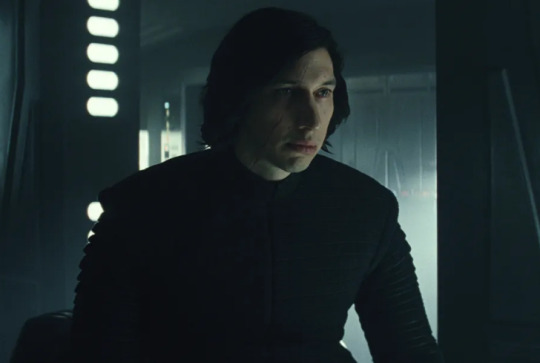
The film reveals that the final push towards the “dark side” was when Ben Solo awoke to see Luke standing over him with his lightsaber while he was sleeping. Without considering the possibility of a miscommunication, Ben Solo brought the roof down on the last Jedi, and then systemically went about converting or eliminating the rest of the students in Luke’s school before burning it to the ground. From there it can be presumed that he officially took on the role of Snoke’s apprentice, dubbing himself Kylo Ren as he joined the ranks of the First Order.
The problem is that it doesn’t matter. There’s nothing relateable about being a white adult male who decides to sign up with a Nazi organization and the very premise that we should try to have sympathy for such a character is chilling, especially when you consider that he murdered Han Solo not more than a week prior in film time.
(PUTTING THE REST UNDER A CUT)
But there’s another element to Kylo Ren that makes him harder to relate to. He comes from a place of privilege in society. Ben Solo was born to two war heroes, and while those might be big shoes to fill, there’s nothing that would indicate that Han and Leia were terrible parents to their son. In The Force Awakens, Leia admits that she sent Ben to train with Luke because she feared Snoke’s growing influence on her son (turns out, she had a right to be concerned). In Chuck Wendig’s canon novel, Empire’s End, from the Star Wars: Aftermath series, we see Han excited, if not a little daunted, about the possibility of becoming a father.
In other words, there’s nothing relateable when you think about a wealthy white male growing up sure of his place in the world and deciding to leave it all behind to join a fascist organization.
Compounding on this, there is someone who is relateable: Finn. Finn was not born from a place of privilege. If anything, we still know very little about Finn’s origins aside from the fact that he was abducted from his parents and raised to be a Stormtrooper. Despite years of conditioning and being ranked as the top cadet in his class, Finn was able to maintain his sense of self and when it came down to his first battle, he decided not to shoot and kill an unarmed villager.
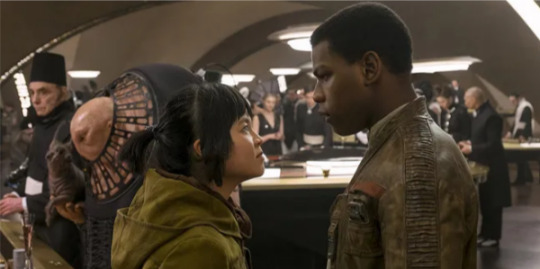
This is the character that most people should be able to relate to. Finn is a character that isn’t sure of his place in the world. He grew up with the First Order and left everything that he knew behind him in order to try to do what he thought was right. Although he initially planned to seek a quick exit from the conflict at Maz’s castle, he didn’t hesitate to rejoin the struggle when he discovered that Rey was in danger. Finn spent most of his time in The Force Awakens running away from something – the First Order, from Jakku, from delivering BB-8 to the Resistance, but we see his progression throughout the movie to the point where he risks his life for Rey and helps the Resistance destroy the Starkiller base. At this point, Finn has rightfully earned his status as a hero.
Until The Last Jedi where Finn is again painted as selfish and cowardly, and the film does not shy away from this fact. Initially branded as a traitor by Rose when he tries to get the beacon as far away as possible to prevent Rey from falling into a trap, he is consistently belittled by Rose throughout the film. She consistently calls him cowardly and self-centered, and Finn’s characterization seems to shift in order to fit this description. When Finn is explaining his plan on hyperspace tracking to Poe, he is excited and confident: he can do this. When he gets to Canto Bight, he suddenly regresses, becoming immature and distracted by the glitz and glamour all around him. Finn knows what’s on the line. Rey is on the line. Poe is on the line. The Resistance has less than 24 hours, and yet he suddenly becomes bumbling and distracted.
This becomes Finn’s character throughout the rest of the film. Brash, impulsive, and worse, being frequently portrayed as the butt of everyone’s jokes. When we first see Finn, he is wandering about the halls of the Resistance in nothing but a bacta suit, as if Finn has suddenly forgotten how to care for himself. The film plays into the stereotypes that many people have about black male individuals. Instead of being treated as the hero of the Resistance, Finn is relegated to a comedic side role based on slapstick humor and unfunny comedy that ultimately doesn’t contribute anything to the plot.
In other words, Finn’s side plot reflects the film’s stance of diversity: we’ll wave it in your face for a few minutes before we wave it aside to make way for the two white protagonists. It’s a bold statement, but not untrue. Rian Johnson first joked that it would be “funny” to leave Finn in a coma for the entire film: “We did at some point joke that it would be great to just have him be in a coma for the whole movie and keep cutting back to him.” He explains that each of these cuts back to Finn would have him uttering some nonsense in his unconscious state, and at no point in the entire run time of the movie would the former Stormtrooper wake up.

When John Boyega first accepted the role of Finn, JJ Abrams told him that he was going to be the new star of Star Wars. Rian Johnson blatantly admitted that it would be “funny” to simply delegate the black lead to the sidelines, where he doesn’t have more than a few scenes of incoherent babbling to serve as comic relief.
Not to mention, it’s Rose who ultimately has to teach Finn about the seedy belly of Canto Bight and how it operates: through slave labor. Another character shouldn’t have to explain to Finn, of all characters, the tortures and ills of slavery. After all, that’s the only life Finn’s known, taken as his family and raised in a life of servitude as a Stormtrooper to the First Order.
The underlying racism in The Last Jedi does not, unfortunately, stop with Finn’s character. We know a lot more about Poe Dameron’s character from the popular Poe Dameron comic series that highlights Poe’s adventures with Black Squadron before they find Lor San Tekka.
In fact, Poe’s arc is highlighted by its racism, as Poe’s character is reduced to a mere stereotype of his ethnicity. From the Before the Awakening, piloting flight logs, and comic series, we have a complete picture of who Poe is as a character. He tells L’ulo, “I’m the best. But you’re the best too” which highlights who he is as a person. He is a gentle soul that sees the best in people, trusting Finn not only to help him escape, but to lower the shields on the Starkiller Base when he said he could. Poe is a genuine nice guy who would give the shirt, er, jacket off their back to help a stranger.

And we see absolutely none of this in The Last Jedi.
Poe is described as rash, dangerous, and aggressive by Vice Admiral Holdo, played by veteran actress Laura Dern. She’s dismissive of him, and while a part of it does play into more harmful stereotypes that I’ll get into later, in this instance, it’s hard not to. In the opening first scene, Poe is prepared to let everyone, everyone die just to take out a First Order Dreadnought. Even though successful, Poe seems more focused on the success of his mission than the countless deaths of his fellow Resistance fighters.
And that is not who Poe Dameron is. To say so makes a complete mockery of a fantastic character whose character has already been set and esteemed by fans. Changing his character to comply with stereotypes in order to try to advance the plot isn’t “moral ambiguity” or “challenging the character” – it’s just bad writing.

In short, Poe becomes aggressive, dangerous and hotheaded, all to fulfill the stereotypical role that the narrative wants him to play. His character attitudes are changed in order to fulfill a plot device, and that’s the conflict set up between himself and Vice Admiral Holdo.
This conflict is disappointing. It focuses on a female leader putting an aggressive, chauvinistic male in his place. It’s supposed to be empowering, but it’s not, especially when you have to have one character act so differently in order to get to that point. The problem is that the kind of feminism this movie is preaching is white feminism, which is dangerous in and of itself.
But what does white feminism mean in this case? Vice Admiral Holdo, and even Rose, both undermine and belittle Finn and Poe, treating them like children. This concept of infantalization upholds racist stereotypes of black and Latino men being both incompetent and irrational. In Poe’s case, it works to also uplift the alleged moral superiority of white women over people of color. And it’s not feminism.
It’s just disgusting.
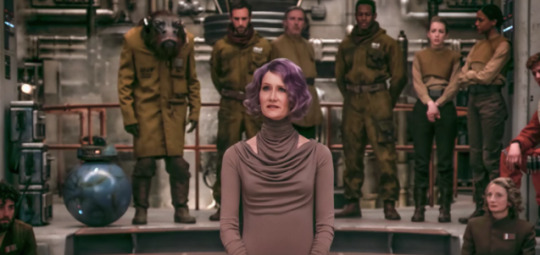
Holdo is held up as someone that people in the Resistance are supposed to respect as a leader, and yet she refuses to tell the very people she’s leading what their plan is, citing Poe’s earlier reckless actions as an excuse. Even according to the Navy’s Leadership Principles, keeping your people informed is the second principle on the list. In other words? It’s pretty important. Vice Admiral Holdo’s refusal to do so is driven by petty motives, and while Poe is painted as ridiculous and childish the entire movie, he’s actually proven right when the First Order does the very thing he was afraid they would do.
One of the “lessons” from Poe’s story line is you should always blindly trust authority figures even when they provide no valid reason for doing so, and this is an extremely dangerous and topic example to set, especially in today’s society when people of color are so often made targets of police brutality, which again feeds back into the movie’s underlying theme of systematic racism.
Holdo herself seeks redemption from her mistakes by turning around and ramming her ship through theirs – an admittedly cool move, although it would be cooler had we not seen Admiral Raddus suggest the idea of plowing through a ship no more than a year earlier – and dies so that Leia can explain to Poe that Holdo was a good leader (without really stating how) because she was more concerned with fulfilling the mission without getting credit for it.
The problem with this? It means that Holdo had to die in order for Poe to “understand” what it meant to be a leader. This doesn’t work for two reasons. For one, Poe is a decorated Commander who had already served as a leader in the Republic Navy before joining the Resistance. Painting him as a cocky flyboy with a chip on his shoulder just doesn’t work when it goes against everything we’ve been told about his character. The “lesson” Poe was supposed to learn was one he already knew.
The second problem is that it meant that Holdo had to die in order for Poe to learn this lesson. In other words, we’re back to that age-old trope: a woman had to die in order to advance the plot/characterization of a male character.
And that’s where we get to our final topic: sexism. For a movie that preaches itself as so overtly feminist, it is rich with sexist undertones that are immediately apparent on the surface. Most of these are notably in the interactions between Rey and Kylo Ren, but there’s another character that I wanted to touch upon first. Rose Tico.
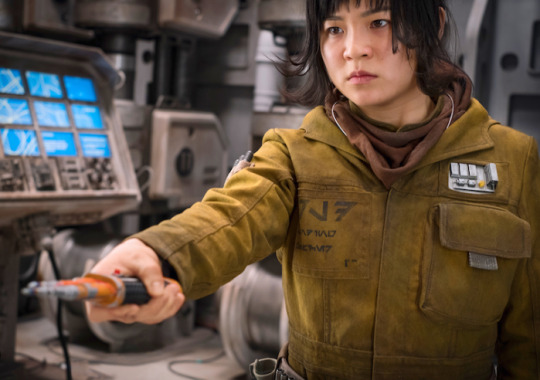
Despite Kelly Marie Tran’s boundless enthusiasm for her role, Rose Tico is ultimately underwhelming as a character. Despite mourning the death of her sister, her ultimate presence in the film seemed to be reduced to a girl with a bad crush on Finn.
I’ve already touched upon how poorly Rose treats Finn, but Rose herself seems to have gotten the short end of the stick in terms of the plot. Her character exists only to serve Rian’s image that your heroes aren’t what they seem, tazing Finn when she sees him trying to escape. From then on, Rose’s status seems to be downgraded to “Finn’s crush” as seen in the description of this deleted scene:
Originally, the film spent some more time clarifying the dynamic between Rey and Finn, and further setting up Rose’s crush on the Resistance “hero.” Rose chastises Finn for “pining for Rey,” which Finn quickly denies, claiming that he was “raised to fight” and that he finally found something to fight for in his friend, Rey. “Whatever,” responds Rose with a hint of jealousy.
Rose’s constant nagging of Finn and being catty about Rey enforces a negative female stereotype that has no business in a Hollywood blockbuster that claims to be catered to young girls, especially when it seems that Rose’s role has been reduced to working the love triangle dynamic between Finn and Rey. This seems like it could only lead to a destructive end for the character, especially considering how she attempts to save Finn’s life by almost sacrificing her own at the end of the film. Rose presents us once again with the trope that a female character must sacrifice herself in order to advance the plot of the male character, in this case, to prove her love for him. It’s a frustrating trope, made all the more exhausting when you consider what her role might be in the next film.

If you focus on the look Rey gives Finn putting a blanket over the unconscious Rose, it sets up tension for the next film: assuming Rey and Rose engage in competition for Finn’s attention, putting the two girls at odds with one another.
Because if the sexism in this movie wasn’t blatant enough, that’s just what Star Wars needs: two girls fighting over a guy. While frustrating to watch, it’s also extremely degrading to both characters and reduces both of their arcs into nothing more than instruments to direct the story of a male character.
Hopefully JJ will take the next episode in a different direction, but the damage that has already occurred in this film cannot be understated. There is, unfortunately, a lot of ground to cover regarding Rey’s story, so I’m going to start with the most visually striking one: Rey’s costume.
In The Last Jedi, Rey adopts what has been dubbed her “Jedi Training” outfit, trading out her three signature buns for a simpler hairstyle and trading out her light Jedi garb for a bit of a darker color. It’s a way for Rey to separate herself from the girl we saw crying desperately over her parent’s retreating ship on Jakku, keeping the same appearance a decade later in the hopes that they would come back to recognize her.
Many who speculated that Rey would undergo this physical transition after she discovered the true origin of her parents and worked to free herself of that disappointment found themselves disappointed. Rey didn’t change her clothes and her hair after she learned about her parentage from Kylo Ren, she learned about it after.
Despite being wet from the rain, another reason for this change is that she was shipping herself off in a box to see Kylo Ren, prompting those who want them to be romantically involved to start citing the Snow White parallels. It’s not hard to believe that the reason for this change was to make Rey appear more feminine. With her hair down, she looks more like a girl and less like the hardened warrior who had to fend for herself back on Jakku.

But wait, wouldn’t that mean that Rey’s entire role in the movie basically focused on developing Kylo Ren as a character? It does, and you wouldn’t be wrong to think that way. Even during Rey’s training sessions with Luke, the conversation is always geared back to Kylo Ren in some way, whether it’s Luke talking about his past or Rey assuring Luke that she won’t end up like Kylo. Either way, we hear Kylo’s name spoken more times between them than we actually hear anything about the Jedi or the things that Luke learned about the Force on his travels (say, Pillio, perhaps?)
It becomes clear early on that despite Rian Johnson saying that the film isn’t about what the fans want, that certain scenes were added in to appeal to a certain demographic. For example, Adam Driver’s uncomfortable shirtless scene?
Rian himself says that the scene had a “specific purpose” of creating an increasing feeling of “uncomfortable intimacy.” In other words, Kylo Ren’s shirtless scene is basically synonymous with a dick pic: no one asked for it, but there it is, one of the most subtle forms of sexual harassment. Think about this another way: if Rey’s character was really a boy, would the shirtless scene still be present? Or necessary?
Hint: it’s not.
The fact that Rey’s character only seems to exist to play a role in Kylo’s story is concerning, considering that she is touted as the protagonist of the sequel trilogy. Even though she witnessed him murder Han Solo no more than a few days prior, she becomes emotionally intimate with him pretty quickly, opening up to him about the strange experiences she had in the “dark place” beneath the island.
And therein lies the problem. When they touched hands, Snoke gave her a vision of Kylo Ren turning back to the light side to compel her to rush off to the Supremacy in the hopes that she could turn Kylo Ren back to the light and turn the tide of the war.
There’s only one problem with that.
It’s not her problem.
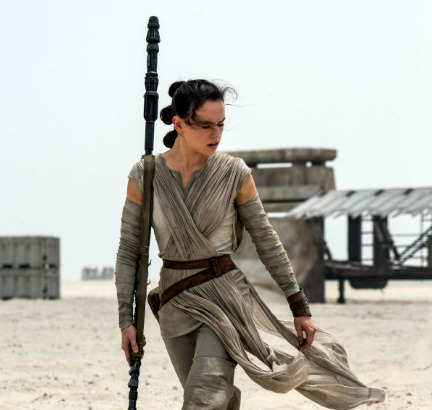
Rey was a civilian. As Kylo Ren himself told her, “You have no place in this story.” She has no part in the conflict between the First Order and the Resistance, and yet she was swept up in it all the same. It shouldn’t be necessary for her to rush off and turn the tide of the war, and while it fits with the Star Wars theme of how one person can make a difference, the trope that a woman must rush off and sacrifice herself in order to progress a man’s character and offer him redemption has been a long-running frustrating trope. If Rey wants to help the Resistance, that’s her choice, but it shouldn’t be necessary to rush off and try to save the person who kidnapped and abused her.
It’s one of the things that makes any sort of Kylo Ren and Rey team-up so off-putting. In The Force Awakens, he kidnaps her and invades her mind in order to try to find the location of the map. After she escapes, he confronts her in the forest, throwing her into a tree several feet up in the air in a move that could have potentially killed her. Then she wakes up just in time to watch him slice through Finn in a move that could have killed him.
Oh, and did I forget to mention how she watched him murder a defenseless Han Solo right before her eyes only moments before? The man who, as Kylo himself taunted, presented a father figure that she never had?
In other words, Rey has absolutely no reason to trust Kylo Ren. She has no reason to even want him to get redemption. For all of Rian’s talk about how he wanted to keep this film “morally grey,” trying to make a genocidal murderer relateable, or even redeemable, was not a step in the right direction. Wouldn’t it have been more compelling to watch Rey wrestle with the ramifications of eliminating Kylo Ren once and for all? Instead of trying to find redemption for the dark side, wouldn’t it have been far more interesting to explore a situation in which Rey realizes that good people must sometimes do bad things for an overall good to result?
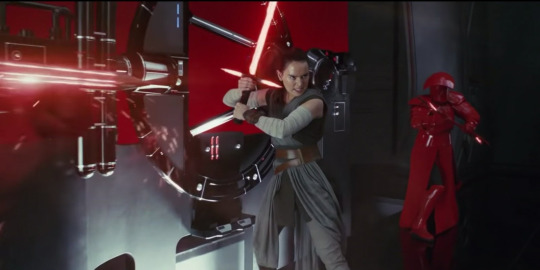
Perhaps, but that’s not the film we got. Instead we got a team-up between Kylo Ren and Rey where, moments after they work together, their alliance is quickly severed. Rey asks Kylo to call off the attack that is sure to eliminate the Resistance, including Finn. Kylo, however, refuses and tells her to move on and join him in ruling. He tells her, “You come from nothing. You’re nothing. But not to me.”
Fortunately Rey grabs the lightsaber and rejects his offer, and the final scene of her closing the Millennium Falcon doors on him seems to confirm that she has severed her connection for good. The problem? The damage has already been done.
Rian Johnson has already set up the Kylo Ren and Rey dynamic to be potentially romantic, between the shirtless scene, the hand touching scene, to be filled with an uncomfortable kind of sexual tension between the girl that declared to Maz, “I don’t want a part of any of this” and the man that murdered his father.
As troubling as that notion is, it does get worse. Kylo Ren tells Rey, “You come from nothing. You are nothing. But not to me.”
The problem is that Kylo Ren’s frequent gaslighting and emotional manipulation throughout the two films reaches its climax: he has discarded Snoke and wants to use the powerful, yet naive Rey, to further his own power. Still, the sexual if not romantic implications are there, pushed along by a group of shippers that call themselves “Reylos,” who desperately seek for Rey to redeem Kylo through, well, you get the idea.

There are several problems with this. One of the first ones is the fact that Kylo Ren is 32 years old, whereas Rey is only 19. While many are quick to claim that age is just a number, Rey is emotionally immature, having been isolated on Jakku for most of her life. There is absolutely no good reason to try to push her into any sort of relationship with someone who is so destructive, especially when the sole reason for doing so is to help Kylo Ren find redemption.
The line, “You’re nothing…but not to me” is a quote that unfortunately most women have heard far too often. It’s an emotional manipulation tactic in order to try to isolate a woman from her friends and family until she only relies on her abuser for support, and this is exactly what Kylo Ren is trying to do here. With Luke unwilling to teach her, Kylo wants Rey to rely on him, and solely him, so that he can use her power and manipulate her to further his own goals (which is to lead the First Order to…conquer the galaxy? It’s not quite clear.)
It’s a frightening message, especially when you think about who this movie is supposedly marketed to. Think about how many children dressed up as Rey for Halloween. How do we explain to girls that the man who killed Han Solo, the man who emotionally manipulated her and tried to use her just to validate himself, is the person that she should ultimately fall in love with? It paints a dangerous picture that girls internalize before they have enough experience to make their own decisions regarding their own relationships.
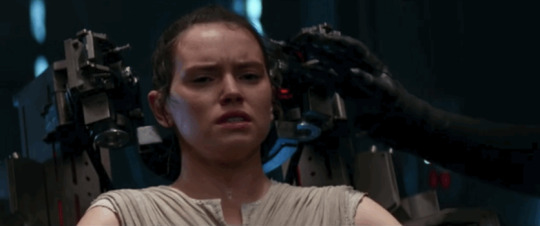
Remember Edward Cullen’s creepy manipulation in Twilight? Apparently that’s crept into Star Wars as well.
And this gets to the heart of the overall problem. The Last Jedi is ultimately soaked in sexism, misogyny and racism, and yet Kathleen Kennedy and Bob Iger widely praised the film before its release. How can Kathleen Kennedy, who said that she was proud to have a feminist icon in Rey, be willing to reduce Rey’s entire story to “the love interest?” If the executives and storygroup approved such blatant racism and actively worked to rewrite characters in order to fit their stereotypical narrative, what hope do we have that the next trilogy will be better, especially when they gave Rian Johnson full control over its content?
Rian himself believes that Darth Vader was worse than Kylo Ren, and while that is probably a conversation as controversial as the movie itself, Rian still wholeheartedly believes that despite what happened in The Last Jedi, that Kylo Ren can be redeemed. It shows that the storyline that JJ Abrams set up has been reduced to simply furthering the narrative of the white villain, and the rest of the characters are simply players in his story, which is why they exist as nothing more than stereotypes in Rian Johnson’s version of Star Wars.
And that’s the disappointment. While The Force Awakens received criticism for being too similar to its predecessor, A New Hope, JJ did set up some interesting and mysterious characters. While Captain Phasma’s role was ultimately underwhelming, fans were assured that she would have a much bigger role to play in Rian Johnson’s world.
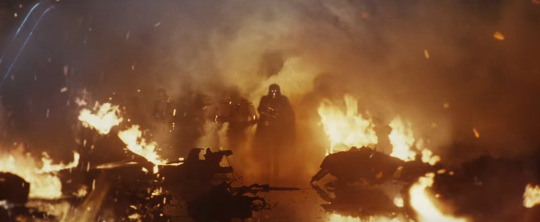
Unfortunately, we all know how that turned out.
Phasma’s quick dismissal wasn’t the only disappointment. Snoke was killed off without any satisfying explanation to who he was or even what he wanted the First Order to do. The Knights of Ren, which were mentioned in The Force Awakens and played a role in Rey’s vision, disappeared from the narrative entirely, instead being replaced by Rian’s Praetorian Guards.
For many, Luke Skywalker’s return was the biggest disappointment. Mark has made no secret in recent weeks citing how he didn’t agree with Rian Johnson’s vision of Luke and how he wished George Lucas had directed the sequel trilogy instead, a mere three days before The Last Jedi hit theatres. It fits into Rian Johnson’s grim version of reality: our heroes can be defeated, and idolizing legends is ultimately unsettling and disappointing when faced with reality.
But by disappearing into the Force, did Luke not himself become a legend, the very thing that Rian seems to chide against? The film’s “message” seems to give audiences such mixed signals, it’s not surprising that audiences claim that the film seemed better after a second viewing: basic elements of the plot just doesn’t make sense, like how the First Order has suddenly developed hyperspace tracking despite the film only taking place a few days after the events of The Force Awakens.
There are other plot holes that point out the flaws in logic in the story: where did Rey learn to swim on Jakku? How can bombers drop bombs in space when there’s no gravity for the bombs to fall? Since space exists in three dimensions, why didn’t the First Order just have a ship drop out into hyperspace in front of the Resistance Star Cruiser and blow it to bits? And why was General Hux, a serious, straight-faced villain in The Force Awakens, who ordered the destruction of the Hosnian System, delegated to a comedic side role who’s only function was to serve as a cheap laugh and be the butt of an awkward your mom joke? Instead of using the antagonism between Kylo Ren and General Hux to show the crumbling of the First Order and how the small band of Resistance heroes we’re left with at the end of the movie might stand a chance against them, it seems that the First Order’s army, which was flowing with Nazi imagery in The Force Awakens has just been reduced to campy slapstick humor.
Despite these obvious problems, the most glaring ones still remain in the fact that Star Wars is a film that claims to market itself to the people it exploits and ultimately rejects. It’s no wonder that merchandise and ticket sales have dropped when the movie is back to focusing on a white male lead, like so many other before it. Kylo Ren tells Rey that you have no part in this story, that she doesn’t belong – something that minorities, women, and the LGBTQ+ community have been hearing their whole lives.
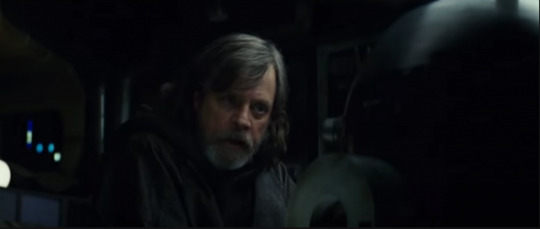
But if this movie isn’t made for these people, then why does Disney keep trying to insist that it is? Most people who have been critical of the film have been met with the chorus of, “You’re just upset that you didn’t get what you wanted” as if it’s somehow wrong to expect more from what you receive. The story was set up so that we would get answers. How someone as powerful as Snoke managed to manipulate Kylo Ren from the womb and grow the First Order from the seeds of the Empire, Phasma’s increased involvement, and especially the question of Rey’s parentage, has been dangled in front of us like a carrot on a stick for the past two years, and it’s ultimately unsatisfying to see all those threads being clipped off and brushed aside with a, “Oh! It didn’t even matter!”
If it didn’t matter, then why feel the need to keep up the secrecy and suspense for two years, when the final product is ultimately disappointing? (Point not withstanding, Kylo Ren tells Rey that Snoke showed him that her parents were buried in a pauper’s grave on Jakku. Why her parents would actually return to Jakku, or whether Snoke was actually telling the truth, is a matter that JJ has yet to resolve.)
It’s not wrong to be a critical consumer of the media that we consume. It’s not wrong to say that we deserve something better. Minorities and women can and should demand to be treated with more respect than they were shown in this film, and the overwhelming amount of racism and misogyny in this film is something that most avid fans of the film have not provided an answer for.
People who claim that The Last Jedi is a good movie, while at the same time acknowledging how deeply misogynistic and racist it is, are contributing to the larger problem we have as a society. It’s saying, “I know it’s racist and misogynistic, but it entertained me, so I’m okay with it.”
It might just be fiction. It might just be a story. But all media we consume influences us, subconsciously or not, in ways that we may not even be aware of. Star Wars may not be real. These characters may not be real.
But it still affects how you feel, and that seems pretty real to me.
#anti-tlj#anti-the last jedi#anti-disney star wars#star wars negativity#star wars sequel negativity#star wars#why the last jedi isn't just bad - it's toxic#last jedi toxic#the last jedi is toxic#tlj toxic#tlj is toxic#scavenger's holocron
45 notes
·
View notes
Text
I still find it so bizarre that some Star Wars fans hold TLJ and Andor to be similar in quality.
TLJ is so carelessly written with very little regard for tone, character, narrative, or even theme* that I actually find it more comparable to Filoni's later works
Hell, the actors hated working on TLJ, while the cast of Andor loved their project.
*this especially I find bizare, because if theme is the go to object of praise for TLJ fans, but they were so poorly communicated, unsupported by the plot, and even dependent on the disregard for tone, character, and narrative that I fail to see what's so praiseworthy
Like, sure you can say it said something new. But what did it actually say?
Did it say women leaders should be afforded respect, or did it say that leaders should be obeyed without question?
Did it say that anyone can be a Jedi or did it ignore previous canon in order to once again center white people in the narrative over people of color?
Did it give Finn a character arc or did it retread his arc while humiliating him at every opportunity?
Did it criticize toxic masculinity or did it assassinate Poe's character in the name of white feminism?
Did it meaningfully engage with the Jedi/Luke Skywalker in order to criticize them, or did it just dictate its themes based on preconceptions.
2 notes
·
View notes
Text

Glad seeing the TLJ fans being normal
2 notes
·
View notes
Text
The options for TLJ are as follows.
Luke is intended to be wrong about everything he says and the message is that the Jedi are and always were fundamentally good, but he still spends two hours shitting all over a culture that's been completely genocided for decades because he feels guilty about how he invaded his own nephew's mind while he was sleeping and then wanted to kill him for a moment because of how dark said nephew's mind was.
Luke is intended to be RIGHT about the Jedi and he failed specifically because he repeated their mistakes, but he's wrong to have lost hope entirely and realizes by the end that Rey can become a "new source" of light that will only succeed because she'll be different from the old Jedi.
So the options here are either that Luke was character assassinated in such a dramatic way that it's impossible to really pick up on the real message of the movie, or that Luke's storyline WAS intended to be Jedi critical the entire time. Both options suck. Both options completely sidelined Rey in her own story and made her character completely flat and pointless.
I'm sorry, but you cannot convince me that this movie was good or had anything kind to say about the Jedi since it spent the MAJORITY of its runtime talking about how awful the Jedi are and blaming them for everything that's gone wrong in the galaxy, turning one of the most beloved Jedi in the entire franchise into a mean spirited mouthpiece.
92 notes
·
View notes
Text
Luo Binghe & Tianlang-Jun: Origins. And a Bit of Projection.
Disclaimer: This is basically just a collection of quotes from The Scum Villain's Self-Saving System, Volume 3, accompanied by (adjective) thoughts, and then even more relevant quotes listed at the end. If I could, I’d paste the entirety of Chapter 18.
“As expected, I can’t bring myself to hate humans.” — Vol. 3, Chapter 21: Always Together
I will always be conflicted on the topic of Tianlang-jun, and it annoys me. There is so much I could say about him, and so little I can successfully articulate. He is, to me, more confounding, complex and tragic than Shen Jiu.
He’s pitiful and awe-inspiring, wicked and affable, cunning and wide-eyed in his curiousity. He is a compelling, heartbreaking character. He alternates between emotionless wisdom and mournful apathy. I admire how his knees don’t buckle under the weight of his grief, but how he crumbles at the barest hint of hope. How rage claws at him and, still, he can’t figure out how to make it stick.
I empathise with him. I understand him.
But then, in the distance, Luo Binghe's indifferent voice disturbs the silence, causing me to drop my drink onto the floor and this post onto your screen:
“He’s not my father.”
It’s an interesting exercise, exploring their relationship in reconciliation fics. To see them interact (semi-)honestly, watch them take turns filling up the chasm between them. It’s wonderful. Every fic I’ve read centred around them was a delightful read that I still think about.
However. I cannot see Tianlang-Jun, as I understand him, as Luo Binghe’s father. And not just because of the 3rd Novel’s events.
But because Binghe had hoped for something; he did have that wide-eyed wonder. He did hold one last window open, for the sake of an improbability he couldn’t quite, just yet, dismiss.
It’s what (most) orphaned and/or adopted childred do.
Though Luo Binghe had never said a word about it before, Shen Qingqiu knew that he harbored some fantasies about his birth parents. […] In fact, he’d always secretly fantasized about whether his parents might still be alive, and how well they’d treat him, and how they’d never let him suffer the mildest slight. — Vol. 3, Chapter 17: Tianlang
It is the most human thing; to want to be helped, accepted, invited by those given to you. A family is given to you. Whether you believe it an act of the divine, of nature, of coincidence, it isn’t something you fight for. It’s the first and, arguably, only thing you don’t have to fight for in life.
Depending on a multitude of factors, that can be a blessing or a curse; but where there is room for interpretation, questions left unanswered, most childred—Binghe included—will turn to their imagination, and try to make sense of it. Usually, to comfort themselves, to reassure themselves that surely, if their family could, they would have.
And, yeah. Most likely, if the Palace Master had gotten punted into the Sun like he fucking deserved, they would have. But does it matter?
In the face of a bleak reality, what comfort is a could-have-been?
He liked to call Luo Binghe “that son of mine,” but he didn’t seem to possess any concept of fatherly affection. […] Luo Binghe was in fact…someone who was unloved by even his own parents. — Vol. 3, Chapter 15: Holy Mausoleum
What use are good intentions to an abandoned child? What consolation is it, to say, They gave birth to you, when that child has seen no evidence of their care? Does it dry their tears, that their mother can’t be here, but she surely would have wished to be? That their father would protect them, if only he knew of them?
(And don’t make me tell you about the visceral horror I felt reading the Origins chapter. I’ve yet to make my peace with it. MXTX, Airplane, whoever: you’ve ruined me.)
The washerwoman was and continues to be, to Binghe, his only mother. And I would argue, that’s healthy. Even independent of his other traumas (Abyss, Shizun’s betrayal, Xin Mo’s influence, living on the streets, etc, holy shit Binghe) Luo Binghe will not accept anyone else as his mother.
“Who is this Su Xiyan?” Luo Binghe asked coldly. “My mother was a mere washerwoman.” — Vol. 3, Chapter 18: Origins.
It may seem callous. It probably even is! But it is a healthy line he’d drawn by his own initiative. It’s what helps him, what he feels he needs to do in order to do right by his mother, and his own heart.
And! Tianlang-Jun doesn’t seem to give much of a shit, either!
Won’t, probably, even in the future, once the dust will have settled. He is exhausted, weary with carrying the corpse of his love, the loss of his nephew. Whatever goodwill he shows, it’s a perfunctory sort, because he can’t afford more.
So. Uhh.
Tianlang-Jun is not a character I can love, nor one I can hate. Usually, I can’t help but be inclined to love complex characters. Like them, too—though that’s more of an action-based thing rather than just said character’s personality.
But with Tianlang-Jun, I’m stuck whichever way I turn. If I want to love/like him, I’m drawn back by Binghe’s pain and disappointment. If I try to hate/dislike him, I’m drawn back by his own history and grief.
In conclusion:
I don't know! I'm not really trying to, like, prove anything. I still love the aforementioned TLJ & LBH fics, I still love their dynamic. I started walking and ended up exactly in the same space. This, perhaps, could be considered a Heavenly Demon Family Mobius Strip!
I'm not really trying to say anything. It just… makes me feel conflicted, and angry, and whenever I allow myself to think about it a bit more, sad.
But.
However!
Alas.
Nonetheless, even.
As a reader and—on my better days—a writer, all I can say is:

As promised/threatened: some selected passages, for your reading pleasure:
So, it looked like neither the father nor the cousin had any intention of acknowledging Luo Binghe. — Chapter 15: Holy Mausoleum
He liked to call Luo Binghe “that son of mine,” but he didn’t seem to possess any concept of fatherly affection. — Chapter 15: Holy Mausoleum
Tianlang-Jun lifted his hand, took a look at Luo Binghe’s snow-pale face, and commented indifferently, “He looks like his mother.” “His eyes look like yours,” came a chill voice from the side. — Chapter 15: Holy Mausoleum
The faint hopes and dreams Luo Binghe had held in his heart for many years had been mercilessly pulverized into so much dust. […] [Tianlang-Jun] refused to speak a single word of their relationship and had been utterly ruthless back in the Holy Mausoleum. […] To his parents, Luo Binghe was an unwanted child. — Chapter 18: Origins
“If he was my father, why didn’t he bring it up earlier? Why not tell me?” The most Tianlang-Jun had said was that single line he offered while beating up Luo Binghe, devoid of either praise or criticism: “He looks like his mother.” He looks like his mother. What of it? But that was all. There was nothing more. — Chapter 18: Origins
Luo Binghe was indifferent. “He’s not my father.” […] Luo Binghe shook his head. It was unclear what he was stubbornly clinging to, but he repeated, “He’s not my father.” — Chapter 18: Origins
Luo Binghe raised his smiling face, his eyes shining brightly. “Mother was the kindest person in all the world to me.” — Chapter 19: Shen Jiu
#scum villian self saving system#svsss#svsss meta#luo binghe#lbh#tianlang jun#tlj#washerwoman#(the only mother!!!)#shen qingqiu#sqq#(lost confused and bitter but always holding luo binghe’s hand!!!!!!)#zhuzhi lang#zzl#(mentioned!!)#su xiyan#sxy#(haunting the world she’d left behind!!!)#hhpm#(…….mentioned)#relationship study#in a way?#anyway. take this and like. do whatever with it?#you can see how the formatting gets derailed the longer i think about them#any mistakes i bequeathe to shen qingqiu. he fixed binghe he can proofread my shit#did i accidentally write an anti tlj post#because i really didnt mean to#PLEASE BELIEVE ME
86 notes
·
View notes
Text
Me whenever hacks like Lily Orchard go after Steven Universe, She-Ra, The Owl House, The Legend Of Korra, Neon Genesis Evangelion, Sailor Moon, Revolutionary Girl Utena, Moon Girl, Star Wars, Dungeon Meshi, ect.
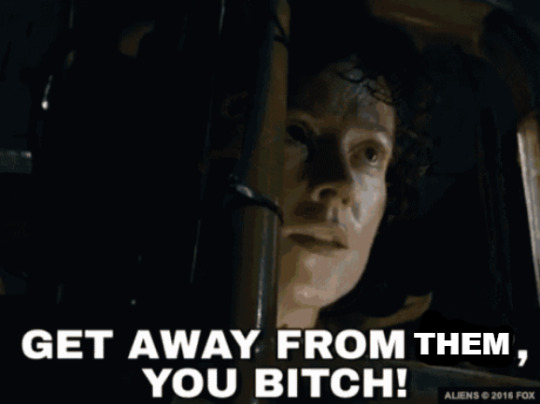
(P.S: I am a massive fan of the media mentioned above) (P.S: Yes. I will fight to the end defending Steven Universe, She-Ra, The Owl House, Utena, Evangelion, Sailor Moon and The Last Jedi.)
#lily orchard#anti lily orchard#lily orchard is a hack#lily orchard is a bad critic#screw lily orchard#lily orchard critical#steven universe#she ra#spop#the owl house#toh#revolutionary girl utena#utena#neon genesis evangelion#evangelion#sailor moon#star wars#the last jedi#the last jedi is the best star wars film since empire#pro-spop#pro-su#pro-tlj#dungeon meshi#the legend of korra#tlok#delicious in dungeon#aliens#ellen ripley
127 notes
·
View notes
Text
honestly feels like rtd pulled a last jedi and said Fuck You for thinking she's special and theorising about it, even though the text explicitly framed her that way and it doesn't make any sense if she isn't
68 notes
·
View notes
Text
Lily Orchard, if you're reading this: The Last Jedi is 1000000x better then your crappy fanfiction The Sith Resurgence. Rose Tico is far, far greater character then your fascist Sith waifu Darth Amorosa. Heck, even Astarion, N and Hunter combined are superior to Darth Amorosa.
#lily orchard#plasma lily#solid lily#lily orchard critical#anti lily orchard#lily orchard is a hack#lily orchard is a bad writer#the last jedi#star wars#star wars the last jedi#tlj#sw tlj#star wars tlj#rose tico#aliana beniko#darth amorosa#astarion#hunter#n#n pokemon#baldur's gate#baldur's gate 3#hunter toh#toh#toh hunter#the owl house#screw lily orchard
36 notes
·
View notes
Note
*enables you* what happened with TLJ 👃
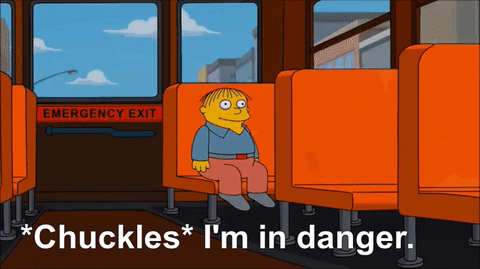
After all these years I still can't properly find words to explain how deeply betrayed I felt after the credits rolled and I shuffled out of the movie theater with everybody else. There was a TON of hype surrounding this movie, an absolute fuckton. I only saw positive reviews about it, the cast, the director, the plot. I got excited to see where Rian Johnson & Co. would take the ST.
The only remotely negative comment I saw before watching the movie was a fandom blog saying they didn't like what happened to Poe. Since this blog was about racism in fandom, I knew something was off. That was my only warning.
And y'know, it was like, five minutes in? Ten minutes? And Poe makes a "Yo mama" joke at Hux? I used to go into movies with an open mind and spent days gathering my thoughts about them because I was always slow to react, slow to gather my thoughts into coherent strings of words. It's how I enjoyed Michael Bay productions and JJ Abrams' love affair with lens flare. I never got actively angry with a movie I was watching, and I was fucking angry by the time the movie ended. I still remember texting a friend while standing out in front of the theater because I was so confused. The response to TLJ was so positive so why did I come out of the movie so frustrated and confused and dissatisfied with the whole thing?
It's been years and we all know how this movie divided the Star Wars fandom and just... broke Fandom Spaces in a way I never expected. We all know what TLJ did and didn't do, and how TROS provided the final nail in the coffin that was the ST experiment. But back then, all I saw was positive commentary about the themes and messages of TLJ, how it portrayed failure and the dangers of putting someone like Luke Skywalker on a pedestal, how the Force was female, how... important it was to see Poe get characterized as a hotheaded hotshot who needed to be demoted, slapped around, and stunned in order to learn some kind of lesson, how important it was to see Finn lose everything he gained in TFA so that he could relearn how not to be selfish or something while starring in a fucking incredibly tone-deaf B plot, how Rey... I'm not sure exactly what because she didn't need training anyway and then spent most of her time trying to bring Ben Swolo back to the light????? Rose was so promising as someone who grew up under the FO's thumb but she and Kelly were fucking abandoned by Disney so I don't know if Rose existing was actually a good idea if it meant giving Kelly unending trauma. Mark slipped up by calling Luke "Jake" and expressing his displeasure in front of cameras, and I was so fucking baffled and alienated by his character after knowing how his story ended in ROTJ that I couldn't connect with whatever lessons I and he are supposed to be learning. JJ set up Snoke like a mystery box and Rian just yeeted him off without so much as a fucking explanation so what was the point of that? Hux was a fucking joke. Phasma was barely there. The only character that Rian cared about was fucking Kylo Ren and Adam says years later that he was never supposed to get a redemption arc anyway.
Like, this was the movie everyone hyped up? This was the movie that didn't answer any questions left unasked by TFA and didn't bother to move forward with character development for any of the known characters? I spent money watching a slow space chase that ended on a planet made of salt and killed off Luke for Reasons? Am I stupid? Am I dumb? Am I a peasant incapable of understanding the masterpiece Rian directed, this so-called Best Star Wars Movie Since ESB?
But I couldn't say anything. I couldn't be dogpiled for hating such a empowering movie for women, a diverse and inclusive movie that had the likes of John and Kelly and Oscar. I couldn't be lumped in with the Star Wars dudebros with their raging misogynistic and racist takes on the movie, the cast, Kathleen Kennedy and Lucasfilm, Disney, etc. I couldn't be seen as one of them just because I didn't like a movie that I should like, I'm supposed to like. So I sat in silence, read meta, witnessed the fucking catastrophic explosion around some wild ass AO3 fandom essays written by a racist OG member of OTW about Finn/Poe, saw hate piled on black and bipoc fans, saw r*ylo fans come for John and John clap back at them, just saw an absolute fuckton of hate, and so by the time TROS came around I just... checked out. There was no way JJ could salvage what Rian had done and I was right. TROS was a corporate-run soulless garbage end to the Sequel Trilogy, but it ended just as The Mandalorian finished its first season and regained a lot of good will with this small story about a lonely Mandalorian bounty hunter who encountered a Force-sensitive Baby Yoda.
And then TBOBF/Season 3 of the Mando Show happened, just like how TLJ happened. All the promise, all the unanswered questions of the previous movie/season, all fucking dropped or provided with the worst, most unsatisfying answer. I'm sure others have found better answers and can live with what Star Wars gave us, but I haven't been able to. TLJ came out years and years ago, and I am still so bitter today. I'm still so bitter because TFA had such an incredibly compelling setup with such promising characters, and then TLJ Did That.
I got so heated while writing this. I'm still so mad. I'm still so bitter. I bury my head so deep in the sandbox I built for myself so that I don't have to think how Disney is twisting and contorting all these Mando'verse shows so that they all eventually lead to the ST, their precious hot potato child that just... didn't have to end the way they did if they actually had a fucking plan and fucking stuck the landing. I'll give the MCU this - their Phase 1? They fucking stuck the landing. I fell off the train tracks and haven't really watched the MCU since Captain Marvel, but at least they had a fucking plan and didn't fucking derail themselves like Disney did with the Sequel Trilogy.
I could be nice to people who like this movie but I'm not going to be. They can be nice on their own blogs.
Man, I can't even watch Knives Out or Glass Onion because my blood starts boiling. Just. TLJ did a lot to ruin what I hoped would be a positive and creative connection with Star Wars, and it took the Mando Show and the 2 minutes where Din and Luke locked eyes on the Imperial light cruiser to bring me back.
I'm gonna stop before I get way too heated for sleep.
#shirozora awkwardly responds to asks#anti TLJ#this is 100% a TLJ hate post and blog#i spent so many years holding in my thoughts about this cursed movie#when I say spite fuels me this is what I mean#this is how I find comfort in 'love star wars. wish it was good'#anyway this was the movie that made me feel crazy for years because how could i hate this movie if everyone said it's good#how can a movie be good if all i got from it was confusion and betrayal#time to go art something and calm down before bed
86 notes
·
View notes
Text
Lynchworthy Star Wars take no 2 of the day:
I don’t like the sequel trilogy personally but you know what? Kylo Ren’s storyline in tlj was good actually. Trying to use it to build a redemption arc cheapened both it and the characters involved
Like this guy is trying to be a bad guy right? He’s actively making all the wrong choices and deliberately plummeting down to make it worse for himself. And along comes this person who hates doesn’t like him. And they’re psychically connected by the make up of the universe
And at the start it’s really annoying that she’s connected to him. but then she tries to reach out a hand to him. She tries to help him climb up. And while she’s reaching down to pull him out he’s reaching up to try and pull her down. She’s trying so hard to help him get better and he decides that he wants power over love, greed over compassion.
He, like his grandfather before him, wants to try to have everything. And well that never works out, this is Star Wars. but he’s in the story so he doesn’t know that.
And the thing is this girl thinks it’s working, and like her teacher before her she ignores the advice of her mentor bc she thinks she knows better. And she’s wrong.
She gets there and he kills his master for power and asks her to join him. And she can’t. This isn’t what she wanted, she wanted to help him.
Where his grandfather chose power for love and let it corrupt him beyond recognition bc he wanted to have it all and then turned on his wife when she tried to stop him, Kylo Ren chooses power over love over and over and over again. He gets chance after chance and he always, deliberately, willingly chooses wrong.
And this makes Rey as a character stronger in turn. This teaches her that everyone makes a choice whether for good or for ill and that you cannot save someone who doesn’t want to be saved and wants to bring you down to them instead. but you might still die trying. Kylo Ren isn’t like Finn, he isn’t someone stuck in a bad situation with no choices that wants to do good. He wants power and he’ll do whatever he thinks he has to to get it. And now he wants her to be a part of that too.
And he fails at it. The more power he grabs for the more darkness he grasps, the more things slip through his fingers and leave him trembling in the dust of all that he’s wrought. He’s not sympathetic, he’s greedy and he’s trying to trick Rey into thinking his story is a tragedy of misunderstandings when it’s actually a wilful tragedy of choice. And that makes him a good character. Not a moral one. Not even necessarily a likeable one (ymmv). But an interesting one that has a lot to contribute to the story and the themes within.
Star Wars is about choices. Bad choices are choices too.
#Star Wars#star wars sequel trilogy#kylo ren#rey#anti reylo#like let characters be bad people in interesting ways#you don’t have to make the character good for the storyline to be interesting#the concept of the Rey/kylo ren side of tlj was interesting#the ultimate execution was just fumbled and then twisted dramatically in the the last film#YOU CAN DO INTERRSTING STORIES WITH YOUR VILLAINS WITHOUT A REDEMTPION ARC ACTUALLY#and you should!
91 notes
·
View notes
Text
The unfortunate legacy of The Force Awakens and the Star Wars sequels
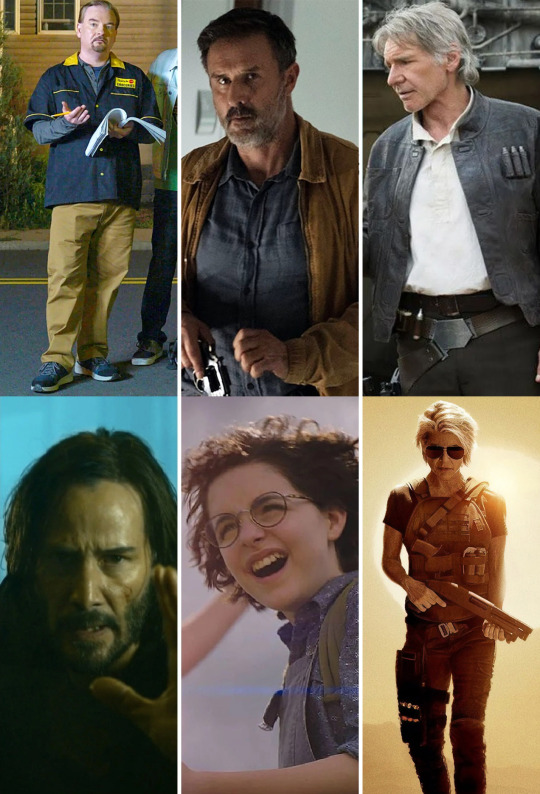
The fact that The Force Awakens made so much money in 2015 has been a lead weight around Hollywood's neck for the better part of a decade now.
We're *STILL* seeing decades-late sequels that imitate the Star Wars sequels' WORST elements.
Specifically:
Make sure your classic character(s) has/have been totally miserable and/or failures since they were last seen. Yes, even though it’s been at LEAST a decade, they should’ve been suffering the whole fucking time.
Erase at least one character's growth (or sometimes even their base character traits) entirely, resetting them back where they started in their first film (or, alternatively, rendering them unrecognizable).
Kill off some of those legacy characters ASAP to ensure they have no hope of ever achieving the happy ending you once promised/implied.
Work in obvious repeats of prior movies’ events and scenes so the audience can be like “Oooh, I remember when they said/did that in the other movies,” resulting in them feeling like they’re in on something and are therefore validated.
In fact... maybe just copy/paste the entire plot from an earlier entry? No surprises means MAXIMUM NOSTALGIA.
These things were all present in The Force Awakens and even repeated for The Last Jedi. But they wound up just being pioneers of a shitty trend.
Some examples:
Terminator: Dark Fate
Ghostbusters Afterlife
The Matrix Resurrections
Scream (2022)
Clerks III
The degree of the severity of these things varies, at least. Maybe not every single legacy character has been completely miserable since we last saw them; it might be only some or even just one of them. I’ll also grant Ghostbusters Afterlife that killing off Egon was the only reasonable choice available to them. Situations like these can help soften the blow... and for those reasons, I don’t hate ALL of the movies I just listed. There’s even one or two I kinda like!
But make no mistake: All of the above lessons/tropes are still shitty ones. The legacy of the Star Wars sequels (TFA most specifically) is still a damning one. I honestly believe that ALL the movies I cited would all be better off if they hadn’t taken ANY cues from TFA’s template.
#legacy sequels#anti-tfa#anti-tlj#anti-disney star wars#star wars negativity#star wars#the matrix resurrections#ghostbusters afterlife#scream 5#scream 2022#clerks iii#terminator dark fate#star wars sequels#anti-star wars sequels
170 notes
·
View notes
Text
Could you imagine if someone said something like “ATLA would���ve been a better show if Zuko was tempted towards joining team Avatar and fighting to end the war but instead chose to pursue evil and staunchly rejected any chance of redemption . Wouldn’t it be so compelling if after the Crossroads of Destiny, Zuko just became more evil? Yeah, I mean fully embracing fire nation nationalism and becoming like his father. I would love it if the narrative presented us with the possibility of his redemption only for it to subvert those expectations and have him begin and end as an ontologically evil villain who remains static for all three seasons. What an amazing character arc that would be.”
This is what “Ben Solo should never have been redeemed” discourse sounds like to me. I know people have their interpretations, but I am genuinely so baffled by the idea that his character would’ve been improved if they had done what is essentially a retread of Anakin’s arc in the prequels. It’s complete and utter nonsense and I’m so annoyed by all of the people talking about that idea as if it’s SOOOOOO DEEP when in reality it’s probably the shallowest storyline you could come up with.
#the comparison might not be the best but I hope I got my point across#Star Wars#Kylo ren#Ben solo#atla#avatar the last airbender#Zuko#redemption arc#tlj#tros#TFA#anakin skywalker#anti tros#ben solo deserved better
63 notes
·
View notes
Text
Don’t worry y’all, Twitter is still trying to convince everyone that TLJ was a good movie and SW fans are the problem 6 years later.
#Happy anniversary you absolute fuck of a film#anti disney star wars#anti tlj#anti rian johnson#anti kylo ren#anti reylo#It was in fact not a good film#not just as a Star Wars movie but actually as a movie by itself#it’s very hard to watch bc how can you care about anyone in it?#not including the real life actors#Continue to age like milk TLJ
69 notes
·
View notes
Text
rereading HTTE, and in the first 5 pages of luke’s introduction, zahn already does a better job characterizing luke’s fear of being the last remaining jedi, the shouldered responsibility of his burden to help rebuild the galaxy post-war, and his depression about all of it , leagues better than TLJ could’ve ever dreamed of. also hot chocolate scene my beloved
88 notes
·
View notes
Text
It's hilarious to see TLJ fans defending its choices with regards to Luke by saying that people who love it AND people who hate it just don't get it, even though somehow both groups are coming to the same conclusion despite having opposing viewpoints on the film overall.
Even if the intended message was intended to be positive about the Jedi, even if Luke was meant to be wrong about them, this just shows that TLJ failed to get that across adequately. Which means all it did is twist a beloved character into an unrecognizable monster for two hours for no good reason. And sidelined both of the main characters to do it for good measure.
79 notes
·
View notes
Text
Every once in a while I remember that Rian Johnson invented Rose Tico because he originally had Finn (child soldier who was brought up with propaganda and any attempts at identity stomped out recently escaped the people that enslaved him) and Poe (child of the New Republic, grew up in peacetime) at Canto Bight together and saw no potential for conflict or real difference between them. And then I stare into the distance and contemplate what could have been.

#like in what universe does finn need to be the one being told slavery is bad?#dj: oh the republic also buys weapons they're just as bad as the first order#finn: my entire childhood would beg to differ you fuck#star wars#rebelfinn#poe dameron#anti the last jedi#anti tlj#don't want this to ruin anyone's dash if they actually like tlj#poe (canonically a huge leia fan): she's a friend of leia's from the rebellion of course we can trust her#finn (grew up in the first order under phasma): yeah i used to blindly follow orders even when they seemed wrong. it didn't end well.
46 notes
·
View notes